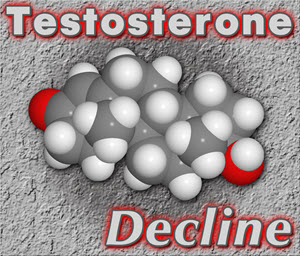Introduction
Testosterone Cypionate, a commonly prescribed form of testosterone replacement therapy (TRT), has been a subject of interest among American males seeking to address hypogonadism and related symptoms. While its benefits in improving muscle mass, libido, and overall well-being are well-documented, the effects of Testosterone Cypionate on cholesterol levels warrant a closer examination. This article delves into the relationship between Testosterone Cypionate and cholesterol profiles, providing crucial insights for American men considering or currently undergoing TRT.
Understanding Testosterone Cypionate
Testosterone Cypionate is an injectable form of testosterone, often administered to men with low testosterone levels. It works by supplementing the body's natural testosterone production, thereby alleviating symptoms associated with hypogonadism, such as fatigue, decreased libido, and reduced muscle mass. However, like any medication, it is essential to consider its potential impact on other aspects of health, including cardiovascular health.
The Link Between Testosterone and Cholesterol
Cholesterol, a waxy substance found in the blood, plays a vital role in the body's functioning. It is categorized into two main types: low-density lipoprotein (LDL) cholesterol, often referred to as "bad" cholesterol, and high-density lipoprotein (HDL) cholesterol, known as "good" cholesterol. Maintaining a healthy balance between these two types is crucial for cardiovascular health.
Research has shown that testosterone levels can influence cholesterol metabolism. Testosterone has been found to increase HDL cholesterol levels while potentially decreasing LDL cholesterol levels. However, the introduction of exogenous testosterone, such as Testosterone Cypionate, may alter this delicate balance.
Effects of Testosterone Cypionate on Cholesterol Levels
Studies investigating the effects of Testosterone Cypionate on cholesterol levels in American males have yielded mixed results. Some research suggests that TRT, including Testosterone Cypionate, may lead to a decrease in HDL cholesterol levels. This is concerning, as low HDL cholesterol is associated with an increased risk of cardiovascular disease.
A study published in the Journal of Clinical Endocrinology and Metabolism found that men receiving Testosterone Cypionate experienced a significant reduction in HDL cholesterol levels compared to a control group. Another study published in the European Journal of Endocrinology reported similar findings, with a notable decrease in HDL cholesterol levels among men on TRT.
However, it is important to note that not all studies have observed these effects. Some research has found no significant changes in cholesterol levels among men receiving Testosterone Cypionate. A study published in the Journal of Urology, for example, reported no significant alterations in lipid profiles among men on TRT.
Individual Variability and Monitoring
The variability in research findings underscores the importance of individual monitoring when undergoing Testosterone Cypionate therapy. American men considering or currently on TRT should work closely with their healthcare providers to regularly monitor their cholesterol levels. This allows for timely adjustments to the treatment plan if necessary, ensuring optimal cardiovascular health.
Mitigating Potential Risks
For American males concerned about the potential impact of Testosterone Cypionate on their cholesterol levels, several strategies can be employed to mitigate risks. Adopting a heart-healthy lifestyle, including regular exercise, a balanced diet rich in fiber and healthy fats, and maintaining a healthy weight, can help offset any potential negative effects on cholesterol.
Additionally, some healthcare providers may recommend the use of medications, such as statins, to manage cholesterol levels in men on TRT. These decisions should be made on an individual basis, taking into account the patient's overall health, risk factors, and response to treatment.
Conclusion
The relationship between Testosterone Cypionate and cholesterol levels in American males is complex and multifaceted. While some studies suggest a potential decrease in HDL cholesterol levels with TRT, others have found no significant changes. Individual monitoring and a proactive approach to cardiovascular health are essential for men undergoing Testosterone Cypionate therapy. By working closely with healthcare providers and adopting a heart-healthy lifestyle, American males can optimize the benefits of TRT while minimizing potential risks to their cholesterol profiles.
Contact Us Today For A Free Consultation

- Testosterone Cypionate: Benefits, Risks, and Management for Aging American Men [Last Updated On: March 12th, 2025] [Originally Added On: March 12th, 2025]
- Testosterone Cypionate: Benefits, Risks, and Long-Term Health Impacts on American Men [Last Updated On: March 17th, 2025] [Originally Added On: March 17th, 2025]
- Testosterone Cypionate: Overcoming Stigma and Enhancing Men's Health in America [Last Updated On: March 17th, 2025] [Originally Added On: March 17th, 2025]
- Testosterone Cypionate Enhances Sleep Quality in American Males Undergoing TRT [Last Updated On: March 18th, 2025] [Originally Added On: March 18th, 2025]
- Testosterone Cypionate: Benefits, Risks, and Prostate Health Management in American Men [Last Updated On: March 18th, 2025] [Originally Added On: March 18th, 2025]
- Navigating Insurance Coverage for Testosterone Cypionate Therapy: A Guide for American Males [Last Updated On: March 19th, 2025] [Originally Added On: March 19th, 2025]
- Minimizing Side Effects of Testosterone Cypionate: A Holistic Approach for American Men [Last Updated On: March 19th, 2025] [Originally Added On: March 19th, 2025]
- Testosterone Cypionate Therapy: Costs, Insurance, and Financial Planning for American Men [Last Updated On: March 19th, 2025] [Originally Added On: March 19th, 2025]
- Testosterone Cypionate: Managing Chronic Conditions in American Men [Last Updated On: March 20th, 2025] [Originally Added On: March 20th, 2025]
- Testosterone Cypionate's Impact on Mental Clarity in American Men: Experiences and Insights [Last Updated On: March 20th, 2025] [Originally Added On: March 20th, 2025]
- Testosterone Cypionate Injection Guide for American Males: Safe Administration and Care [Last Updated On: March 20th, 2025] [Originally Added On: March 20th, 2025]
- Testosterone Cypionate: Enhancing Libido in American Males - Benefits and Considerations [Last Updated On: March 21st, 2025] [Originally Added On: March 21st, 2025]
- Testosterone Cypionate's Role in Weight Management for American Men: Benefits and Risks [Last Updated On: March 22nd, 2025] [Originally Added On: March 22nd, 2025]
- Testosterone Cypionate: Dispelling Myths and Providing Facts for Informed Use [Last Updated On: March 22nd, 2025] [Originally Added On: March 22nd, 2025]
- Testosterone Cypionate's Impact on Joint Health in American Men: Benefits and Risks [Last Updated On: March 22nd, 2025] [Originally Added On: March 22nd, 2025]
- Testosterone Cypionate and Hair Loss: Mechanisms, Studies, and Management Strategies [Last Updated On: March 23rd, 2025] [Originally Added On: March 23rd, 2025]
- Testosterone Cypionate Guide: Benefits, Risks, and Safe Usage for American Men [Last Updated On: March 24th, 2025] [Originally Added On: March 24th, 2025]
- Testosterone Cypionate: Essential Hormone Therapy for Transgender Men's Gender Affirmation [Last Updated On: March 24th, 2025] [Originally Added On: March 24th, 2025]
- Testosterone Cypionate's Cardiovascular Impact on American Men: Benefits and Risks [Last Updated On: March 24th, 2025] [Originally Added On: March 24th, 2025]
- Testosterone Cypionate: Enhancing Body Composition in American Men - Benefits and Risks [Last Updated On: March 24th, 2025] [Originally Added On: March 24th, 2025]
- Testosterone Cypionate: Enhancing Energy in American Men with Low Testosterone [Last Updated On: March 24th, 2025] [Originally Added On: March 24th, 2025]
- Testosterone Cypionate: A Promising Aid in Managing Diabetes in American Males [Last Updated On: March 24th, 2025] [Originally Added On: March 24th, 2025]
- Testosterone Cypionate: Safety, Benefits, and Monitoring for American Males [Last Updated On: March 24th, 2025] [Originally Added On: March 24th, 2025]
- Testosterone Cypionate's Impact on Liver Function in American Males: Risks and Monitoring [Last Updated On: March 24th, 2025] [Originally Added On: March 24th, 2025]
- Testosterone Cypionate's Impact on Digestive Health in American Men: A Comprehensive Analysis [Last Updated On: March 25th, 2025] [Originally Added On: March 25th, 2025]
- Testosterone Cypionate: A Novel Approach to Managing Allergies in American Males [Last Updated On: March 25th, 2025] [Originally Added On: March 25th, 2025]
- Testosterone Cypionate's Impact on Cognitive Function in American Men: A Comprehensive Overview [Last Updated On: March 25th, 2025] [Originally Added On: March 25th, 2025]
- Testosterone Cypionate: Effects on Skin Health and Management Strategies for American Men [Last Updated On: March 25th, 2025] [Originally Added On: March 25th, 2025]
- Testosterone Cypionate's Impact on Kidney Function in American Men: Risks and Monitoring [Last Updated On: March 25th, 2025] [Originally Added On: March 25th, 2025]
- Testosterone Cypionate's Impact on Blood Pressure in American Men: A Comprehensive Analysis [Last Updated On: March 25th, 2025] [Originally Added On: March 25th, 2025]
- Testosterone Cypionate's Impact on Red Blood Cell Production in American Men [Last Updated On: March 25th, 2025] [Originally Added On: March 25th, 2025]
- Testosterone Cypionate Therapy: Monitoring and Optimizing Levels in American Men [Last Updated On: March 25th, 2025] [Originally Added On: March 25th, 2025]
- Testosterone Cypionate's Impact on Emotional Well-being in American Males: Benefits and Risks [Last Updated On: March 25th, 2025] [Originally Added On: March 25th, 2025]
- Testosterone Cypionate: Legal Status and Compliance for American Males [Last Updated On: March 25th, 2025] [Originally Added On: March 25th, 2025]
- Testosterone Cypionate: A Promising Treatment for Chronic Fatigue in American Males [Last Updated On: March 26th, 2025] [Originally Added On: March 26th, 2025]
- Testosterone Cypionate: A Promising Treatment for Osteoporosis in Aging American Males [Last Updated On: March 26th, 2025] [Originally Added On: March 26th, 2025]
- Testosterone Cypionate's Impact on Vision Health: Benefits and Risks for American Males [Last Updated On: March 26th, 2025] [Originally Added On: March 26th, 2025]
- Testosterone Cypionate's Impact on Thyroid Function in American Males: A Review [Last Updated On: March 26th, 2025] [Originally Added On: March 26th, 2025]
- Testosterone Cypionate's Impact on Mental Health in American Men: Benefits and Risks [Last Updated On: March 26th, 2025] [Originally Added On: March 26th, 2025]
- Testosterone Cypionate: A Promising Treatment for Depression in American Males [Last Updated On: March 26th, 2025] [Originally Added On: March 26th, 2025]
- Testosterone Cypionate: Enhancing Injury Recovery in American Males [Last Updated On: March 27th, 2025] [Originally Added On: March 27th, 2025]
- Testosterone Cypionate's Impact on Immune Function in American Males Undergoing TRT [Last Updated On: March 27th, 2025] [Originally Added On: March 27th, 2025]
- Testosterone Cypionate and Male Pattern Baldness: Risks and Management for American Men [Last Updated On: March 28th, 2025] [Originally Added On: March 28th, 2025]
- Testosterone Cypionate's Impact on Lung Function in American Men: Benefits and Risks [Last Updated On: March 28th, 2025] [Originally Added On: March 28th, 2025]
- Testosterone Cypionate's Impact on Eye Health in American Men: Risks and Benefits [Last Updated On: March 28th, 2025] [Originally Added On: March 28th, 2025]
- Testosterone Cypionate's Impact on Hearing in American Men: A Comprehensive Study [Last Updated On: March 28th, 2025] [Originally Added On: March 28th, 2025]
- Testosterone Cypionate's Impact on Dental Health in American Men: A Comprehensive Analysis [Last Updated On: March 29th, 2025] [Originally Added On: March 29th, 2025]
- Testosterone Cypionate: A Promising Treatment for Autoimmune Disorders in American Men [Last Updated On: March 29th, 2025] [Originally Added On: March 29th, 2025]
- Testosterone Cypionate: Exploring Its Dermatological Benefits for American Males [Last Updated On: March 29th, 2025] [Originally Added On: March 29th, 2025]
- Testosterone Cypionate's Impact on American Men's Nervous System: Benefits and Risks [Last Updated On: March 31st, 2025] [Originally Added On: March 31st, 2025]
- Testosterone Cypionate: A Promising Pain Management Solution for American Males [Last Updated On: March 31st, 2025] [Originally Added On: March 31st, 2025]
- Testosterone Cypionate: A Promising Therapy for Respiratory Health in American Men [Last Updated On: March 31st, 2025] [Originally Added On: March 31st, 2025]
- Testosterone Cypionate's Impact on American Men's Urinary Health: Risks and Management [Last Updated On: April 1st, 2025] [Originally Added On: April 1st, 2025]
- Testosterone Cypionate's Impact on U.S. Male Reproductive Health: Risks and Management [Last Updated On: April 3rd, 2025] [Originally Added On: April 3rd, 2025]
- Testosterone Cypionate: Effects on Endocrine System and Long-term Management in American Men [Last Updated On: April 5th, 2025] [Originally Added On: April 5th, 2025]
- Testosterone Cypionate: Managing Musculoskeletal Disorders in American Males [Last Updated On: April 5th, 2025] [Originally Added On: April 5th, 2025]
- Testosterone Cypionate: A Promising Treatment for Metabolic Disorders in American Males [Last Updated On: April 6th, 2025] [Originally Added On: April 6th, 2025]
- Testosterone Cypionate's Impact on Immune System in American Men: Risks and Benefits [Last Updated On: April 7th, 2025] [Originally Added On: April 7th, 2025]
- Testosterone Cypionate's Impact on Cardiovascular Health in American Men: A Comprehensive Review [Last Updated On: April 8th, 2025] [Originally Added On: April 8th, 2025]
- Testosterone Cypionate's Impact on Respiratory Health in American Men: Benefits and Risks [Last Updated On: April 9th, 2025] [Originally Added On: April 9th, 2025]
- Testosterone Cypionate's Impact on Kidney Function in American Men: Risks and Mitigation [Last Updated On: April 9th, 2025] [Originally Added On: April 9th, 2025]
- Testosterone Cypionate: Potential Benefits for Neurological Disorders in American Males [Last Updated On: April 9th, 2025] [Originally Added On: April 9th, 2025]
- Testosterone Cypionate's Impact on Gastrointestinal Health in American Males: Benefits and Risks [Last Updated On: April 9th, 2025] [Originally Added On: April 9th, 2025]
- Testosterone Cypionate: Dermatological Impacts and Management in American Men [Last Updated On: April 10th, 2025] [Originally Added On: April 10th, 2025]
- Testosterone Cypionate: A Promising Treatment for Hematological Disorders in American Males [Last Updated On: April 11th, 2025] [Originally Added On: April 11th, 2025]
- Testosterone Cypionate's Effects on American Men's Genitourinary System: Benefits and Risks [Last Updated On: April 12th, 2025] [Originally Added On: April 12th, 2025]
- Testosterone Cypionate: Enhancing Muscle, Bone, and Joint Health in American Males [Last Updated On: April 15th, 2025] [Originally Added On: April 15th, 2025]
- Testosterone Cypionate: Exploring Dermatological Benefits and Safety in American Males [Last Updated On: April 15th, 2025] [Originally Added On: April 15th, 2025]
- Testosterone Cypionate: A Promising Therapy for Respiratory Disorders in American Males [Last Updated On: April 15th, 2025] [Originally Added On: April 15th, 2025]
- Testosterone Cypionate's Hematological Impact on American Men: Risks and Management [Last Updated On: April 16th, 2025] [Originally Added On: April 16th, 2025]
- Testosterone Cypionate: Potential Benefits in Managing Renal Disorders in American Males [Last Updated On: April 17th, 2025] [Originally Added On: April 17th, 2025]
- Testosterone Cypionate's Impact on Gastrointestinal Health in American Men [Last Updated On: April 17th, 2025] [Originally Added On: April 17th, 2025]
- Testosterone Cypionate: Impacts on American Males' Endocrine System and Health Management [Last Updated On: April 17th, 2025] [Originally Added On: April 17th, 2025]
- Testosterone Cypionate: Managing Endocrine Disorders in American Males [Last Updated On: April 18th, 2025] [Originally Added On: April 18th, 2025]
- Testosterone Cypionate: Psychiatric Benefits and Risks for American Men [Last Updated On: April 18th, 2025] [Originally Added On: April 18th, 2025]
- Testosterone Cypionate: Neurological Impacts and Considerations for American Men [Last Updated On: April 19th, 2025] [Originally Added On: April 19th, 2025]
- Testosterone Cypionate's Psychiatric Impact on American Men: Benefits and Risks [Last Updated On: April 20th, 2025] [Originally Added On: April 20th, 2025]
Word Count: 634





















